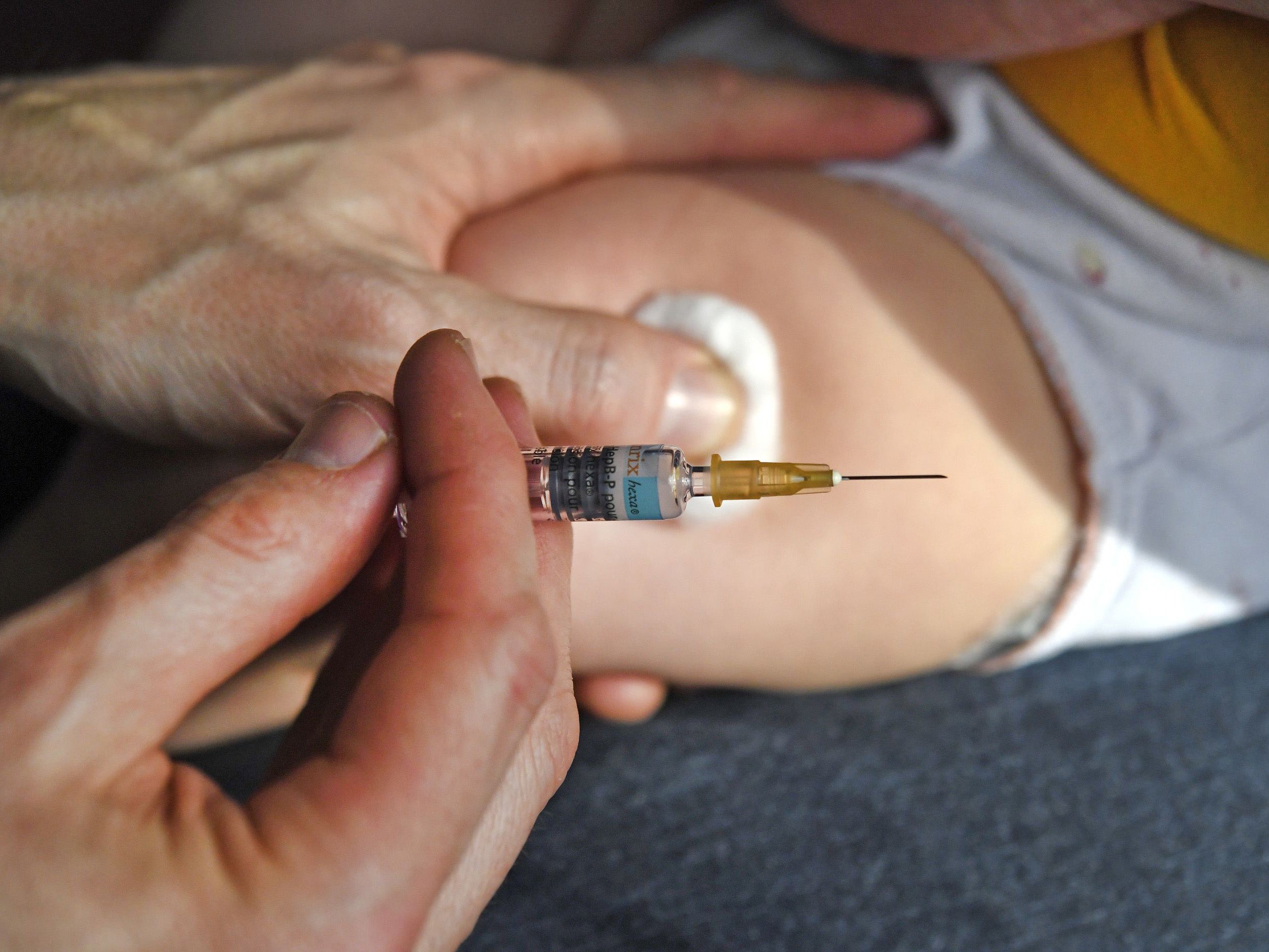Social media fuelling anti-vaxxer movement with Europeans the most sceptical in the world, global poll shows
Vaccination being rejected alongside gluten and hospital births as ‘pro-nature’ parents turn to Facebook and Instagram for advice, experts warn

Your support helps us to tell the story
From reproductive rights to climate change to Big Tech, The Independent is on the ground when the story is developing. Whether it's investigating the financials of Elon Musk's pro-Trump PAC or producing our latest documentary, 'The A Word', which shines a light on the American women fighting for reproductive rights, we know how important it is to parse out the facts from the messaging.
At such a critical moment in US history, we need reporters on the ground. Your donation allows us to keep sending journalists to speak to both sides of the story.
The Independent is trusted by Americans across the entire political spectrum. And unlike many other quality news outlets, we choose not to lock Americans out of our reporting and analysis with paywalls. We believe quality journalism should be available to everyone, paid for by those who can afford it.
Your support makes all the difference.Europeans are more likely than anyone else in the world to believe vaccines are unsafe and ineffective, according to the first global study on people’s feelings about the jabs.
Around 79 per cent of the world’s population think vaccines are safe and 92 per cent of parents say their children have been vaccinated, the poll of 140,000 people in 140 countries found.
While the UK was more trusting of vaccines than other European nations, one in 11 people said they thought they were unsafe compared to 16 per cent in the rest of Europe, it was still more sceptical than the global average.
High-income nations in general were more sceptical, and the research suggests anti-vaccine sentiments are a “canary” for mistrust in government, doctors and other authority figures. Experts in vaccine beliefs said that relatively high confidence in Britain could “mask” this erosion of trust which is becoming harder to measure as social media becomes more influential in our lives.
“This slow burn, this underlying erosion, is very important, and it’s particularly critical with this younger population who are the next parents,” said Professor Heidi Larson, who leads the Vaccine Confidence Project at the London School of Hygiene and Tropical Medicine.
Social media becomes an issue when this erosion of trust in experts – or simply difficulty getting appointments with a doctor – leads concerned parents to search for their answers from peers on social media.
“Vaccines are kind of a canary for your relationship with government, with big business,” Professor Larson told The Independent.
“There’s this growing movement of young mothers who are completely ‘pro-nature’. This identity, which is paleo, gluten-free diets, home births – they’re not even using contraceptives now they’re using an app – with that they’re adding in a vaccine-free childhood.”
Professor Larson said many parents may have always assumed they would vaccinate their children and only opt not to after becoming part of these groups.
“There’s nothing evil in that, it’s just misguided,” Professor Larson added. “They’re trying to do the best in a very confusing information environment.”
A recent report warned half a million UK children in the past seven years have missed the MMR jab, and with measles cases rising 200 per cent there have been calls for compulsory vaccination in schools.
France, the most vaccine-sceptical nation in the world where a third of people say the jabs are unsafe, last year made routine vaccination compulsory.
But experts say compulsion is generally a poor way to build confidence in vaccines and have recommended health authorities do more to improve access to GPs and health services and respond to parents’ concerns directly.
“No matter how great your idea, how exciting your new treatment or how robust your science, it must be accepted by the people who stand to benefit from it,” said Dr Jeremy Farrar, director of the health foundation Wellcome.
“Vaccines, for example, are one of our most powerful public health tools, and we need people to have confidence in them if they are to be most effective.”
Join our commenting forum
Join thought-provoking conversations, follow other Independent readers and see their replies
Comments